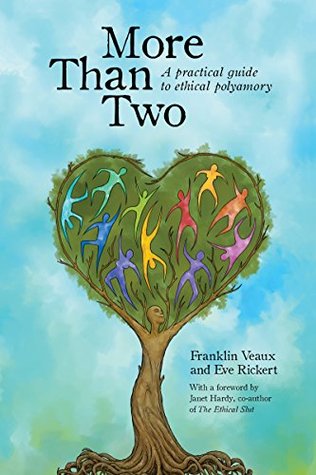More on this book
Community
Kindle Notes & Highlights
Read between
January 3 - March 21, 2024
But happiness is something we re-create every day. And it comes more from our outlook than from the things around us.
Loving more than one person at the same time is not an escape from intimacy; it is an enthusiastic embrace of intimacy.
Monogamy tells us that successful, “real” relationships all look about the same. Relationships that last a long time are called successes, without regard to misery, and those that end are called failures, without regard to happiness.
There’s a saying among poly people: “Love is infinite; time and attention are not.”
An omission is a lie when it is calculated to conceal information that, were it known to the other party, would be materially relevant to her.
Learning to understand and express your needs, learning to take responsibility for your emotions…that’s hard work.
“You can come with baggage, but you’re responsible for knowing what’s in the suitcases.”
We are usually really good at feeling our feelings, but we tend to react to the feeling rather than the actual need.
Think of compassion and free will as values you strive for, not attributes you have.
Worthiness is not the same as validation. A sense of self-worth comes from within, not from someone else.
Courage is a verb, grammarians be damned: it’s not something you have, it’s something you do. You practice a bit every day. And if you fall down, if your courage fails you, you always get another chance. Always. Courage happens in increments.
theologian Mary Daly said, we “learn courage by couraging.”
Insecurity is toxic. You can’t trust what you’re always afraid of losing. You can never become a full partner in a relationship you do not believe you “deserve.”
Self-image, like playing the piano, is something you become good at by practice. If you practice being insecure—if you accept thoughts and ideas that tear down your sense of self, if you lie in bed at night and think about the reasons you are not worthy or good enough—then you become highly skilled at being insecure. On the other hand, if you practice security—if you reject thoughts and ideas that tear down your sense of self and accept ideas that build it up, if you lie in bed at night and think about the qualities that make you special and give the people in your life value—then you become
...more
When faced with something that scares you or makes you feel threatened, think what choice you’d make if you were confident and secure…and then do that. Even if it scares the hell out of you. No one will know.


